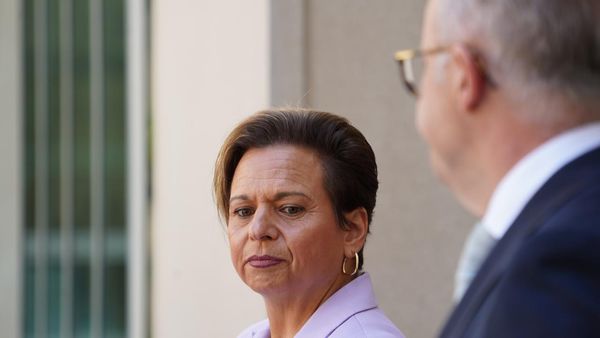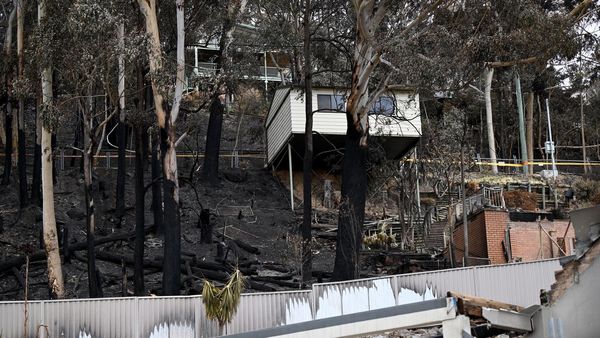
Australia likes to imagine itself as a decent, open society underscored by a sense of fairness for all.
Nothing could be further from the truth. Our colonial history began as a convict settlement and the culture of punishment and cruelty has not changed.
This week the disability royal commission has heard harrowing evidence about the mistreatment of some of Australia’s most isolated and vulnerable individuals. In doing so, the royal commission has destroyed our happy national myth and exposed the horror, cruelty and brutality of a broken prison and detention system.
The stories of cruelty and brutality are not aberrations in the system. They are the system.
Evidence before the royal commission has shown systemic violence and abuse of men, women and children by those supposed to protect them.
And this cruelty is deliberately targeted at the most vulnerable – a shocking 60% of those who died in prison in Western Australia between 2010 and 2020 had a disability, and half of them also identified as Aboriginal.
Banksia Hill is a notorious youth detention centre in Perth, as bad as Don Dale (the Darwin youth detention centre whose appalling conditions triggered a royal commission in 2016). The conditions are so squalid as to be almost medieval. Staffing levels are dire. Self-harm and suicide attempts are commonplace. And remember, these are just children, almost all of whom are suffering from a neuro-psychological disability.
It’s a humanitarian crisis that we might read about in a so-called “third-world” country. And yet it’s happening right here, right now, in supposedly one of the most affluent, fair-minded countries in the world.
Banksia Hill is in fact a national disgrace that shames every Australian.
The royal commission heard from the father of a disabled child who was raped in detention and was forced by his guards to wash up the evidence and dispose of it. He never received any support, care or compassion after that horrific event.
Elsewhere, children have been bashed and left weeping in solitary confinement, in complete darkness and in freezing cells that were covered in urine, vomit and faeces. They were then starved of food and human decency.
These may read like scenes from a Dickens novel. But if anything, the reality is much worse.
And these horrors are not the exception to the rule. They are a day-to-day reality.
At Banksia Hill children as young as 11 have been routinely left to “calm down” with their hands and feet cuffed together behind their backs. Guards describe this as “folding up”. Meanwhile others are beaten as a matter of routine or locked in their dank, grubby cells for up to 23 hours a day.
And the normal education, health and other support services that all Australians take for granted for their children are a distant dream and a cruel joke for the children at Banksia Hill. We heard of children denied a warm bed, hot showers, decent meals, schooling – not even allowed a pencil. And of course, none of the things all children really need – no gentleness or kindness, no warmth, no tenderness.
The long-term results of these policies are all too obvious. If you treat children like animals then they will respond the same way. We are, in effect, telling a generation of children that their lives just don’t matter; that no matter what they achieve, it will never be enough for them to be a part of society.
We also know of children who have experienced sexual abuse growing up who are unable to get any support in youth detention. Can you imagine the traumatic effect of a strip-search on a child who has been subjected to that form of abuse?
Again, these horrors are not isolated incidents; they occur every day in every Australian state or territory.
The brutalisation of these vulnerable children is a deep and bloody stain on our nation.
All governments must abandon these cruel and inhumane policies. There is plenty that could easily be done almost immediately.
It is simply an absurd waste of taxpayer money to continue to funnel so many people into our prison system. It does absolutely nothing for the people in prison, nor does it make our society safer. Diversion of children away from the prison system should be a priority. The age of criminal responsibility must be raised to 14 to safeguard children from these horrifying environments.
Instead of brutalisation, those in prison or detention need decent health care and education, provided by independent and culturally sensitive organisations like the Aboriginal Medical Services, disability groups and community organisations. Mental health crises must not lead to segregation and solitary confinement, which virtually guarantees that people’s lives will be destroyed when they could so easily be saved. Children need to receive intense care and support in a healthy, open environment.
Children need to be prepared for a life outside incarceration, so that that they do not come back through the revolving door of prison.
Transparency is essential – we need to lift the rock under which these violent practices thrive.
Ultimately, all we seek is decency and humanity. And an end to these quotidian horrors. Is that so much to ask in a country that prides itself on a “fair go”?
George Newhouse and Duncan Fine are two of the founders and directors of the National Justice Project, a law firm acting for refugees and Australia’s First Nations people
In Australia, the crisis support service Lifeline is 13 11 14. In the UK and Ireland, Samaritans can be contacted on freephone 116 123, or email jo@samaritans.org or jo@samaritans.ie. In the US, the National Suicide Prevention Lifeline is at 800-273-8255 or chat for support. You can also text HOME to 741741 to connect with a crisis text line counselor. Other international helplines can be found at befrienders.org







